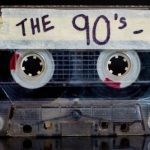 History
History  History
History  Health
Health 10 Everyday Activities That Secretly Alter Consciousness
 History
History Top 10 Historical Disasters Caused by Someone Calling in Sick
 Animals
Animals 10 New Shark Secrets That Recently Dropped
 Movies and TV
Movies and TV 10 Forgotten Realities of Early Live Television Broadcasts
 Technology
Technology 10 Stopgap Technologies That Became Industry Standards
 Weird Stuff
Weird Stuff 10 Wild Facts About Taxidermy That You Probably Didn’t Know
 Travel
Travel 10 Beautiful Travel Destinations (That Will Kill You)
 Miscellaneous
Miscellaneous 10 Modern Marriage Rituals Born from Corporate Branding
 Weird Stuff
Weird Stuff Ten Bizarre Visions of 2026 from Fiction
 History
History 10 “Modern” Problems with Surprising Historical Analogs
 Health
Health 10 Everyday Activities That Secretly Alter Consciousness
 History
History Top 10 Historical Disasters Caused by Someone Calling in Sick
Who's Behind Listverse?

Jamie Frater
Head Editor
Jamie founded Listverse due to an insatiable desire to share fascinating, obscure, and bizarre facts. He has been a guest speaker on numerous national radio and television stations and is a five time published author.
More About Us Animals
Animals 10 New Shark Secrets That Recently Dropped
 Movies and TV
Movies and TV 10 Forgotten Realities of Early Live Television Broadcasts
 Technology
Technology 10 Stopgap Technologies That Became Industry Standards
 Weird Stuff
Weird Stuff 10 Wild Facts About Taxidermy That You Probably Didn’t Know
 Travel
Travel 10 Beautiful Travel Destinations (That Will Kill You)
 Miscellaneous
Miscellaneous 10 Modern Marriage Rituals Born from Corporate Branding
 Weird Stuff
Weird Stuff Ten Bizarre Visions of 2026 from Fiction
10 Huge Songs You Didn’t Know Were Written for Movies
Thanks to its bitesize format and ubiquity in a digital society where one is never too far from a speaker or Spotify playlist, music can weave its way into the public consciousness without our active participation. As a result, many songs enter our lives untethered from their artists and origins.
Some of the biggest hits we find ourselves humming along to have permeated pop culture and transcended their origins so completely we can often forget—if we ever knew in the first instance—that they were commissioned and written for the movies. But, as is the case with the following 10, there is often good reason for this; so huge is the popularity of these tracks that they have not only left behind associations with the films they were written for but have vastly eclipsed them in the process.
Related: Ten Iconic Movie Soundtracks That Defined a Genre
10 “Fight the Power”—Do the Right Thing (1989)
At a time when racial tensions were fracturing in urban USA, and rap was the medium by which young Black communities communicated their struggle and spoke their truth, Public Enemy’s “Fight the Power” was a rallying cry. Layered with hip-hop breakbeats, scratches, samples, and even a saxophone solo, the song has become a mainstay on radio stations worldwide in the years since its release. It even scored second in Rolling Stone’s 500 Best Songs of All Time in 2021.
While most cinephiles will be aware of its connection with Spike Lee’s third flick Do the Right Thing, many don’t know that the song was actually written for the film and not just used in it. Lee enlisted Public Enemy to bring their politically charged sound to his NYC-set tale of racial aggravation with an “anthem” that would help not only define the film but also the era’s overarching sense of political restlessness.
Thus, frontman Chuck D went back to his roots, drawing inspiration from the Isley Brothers’ song of the same name and turning it into a piece of all-out musical activism that still inspires action today.[1]
9 “Independent Women Part I”—Charlie’s Angels (2000)
Better known simply as “Independent Women,” this popular R&B track proved to be one of girl group Destiny’s Child’s defining hits. It was also one of three songs (along with “Survivor” and “Bootylicious”) that propelled Beyoncé Knowles to global stardom.
But the pop mega-hit, which champions women’s financial independence in a materialistic world, was written for McG’s Charlie’s Angels. As a result, includes a shout-out to the cast—Drew Barrymore, Lucy Liu, and Cameron Diaz. Barrymore herself was also a producer on the film and got to collaborate directly with Destiny’s Child during the song’s production and music video.
The track was followed in 2001 by “Independent Women Part II,” released on the group’s album Survivor, but the less said about that song, the better—there’s a good reason the “Independent Women” everyone knows and loves isn’t commonly referred to as “Part I.”[2]
8 “This Woman’s Work”—She’s Having a Baby (1988)
Kate Bush’s track “This Woman’s Work” is rightly considered among her best, frequently appearing alongside “Wuthering Heights” and “Running Up That Hill” at the top of major magazine rankings and polls. But renowned ’80s teen movie director John Hughes is the person we have to thank for the song’s existence.
By the late-1980s, Hughes had so much pull in the performing arts that he regularly signed up major talents to compose music for his films. And this selective pool of artists ultimately came to include Bush for She’s Having a Baby. Bush was given a small section of the film to write for, and she put her track together in record time, writing at her piano in front of footage from the film. As a result, the track is pared down with piano, vocals, a bit of choral overdubbing, and none of the usual theatrics the singer is known for.
“This Woman’s Work” is surprisingly simple yet manages to be huge, poignant, and perhaps too big for the film—one of Hughes’s more forgettable features. Like much of the Bush oeuvre, the song has re-entered the UK and U.S. charts time and again over its 35 years since release, proving not only the artist’s longevity but the value of such a straightforward yet powerful track.[3]
7 “Moon River”—Breakfast at Tiffany’s (1961)
Unlike some of the films in this article, Blake Edwards’s Breakfast at Tiffany’s has remained as vibrant in the public mind as its soundtrack. Originally sung by the film’s star Audrey Hepburn, the film’s lead song, “Moon River,” is a track that has detached from its origins due to the sheer scale of its popularity. In fact, so many huge figures have covered it and made it their own that it can be hard for the casual listener to identify the song’s original artist.
Written by Henry Mancini and Johnny Mercer, the song was designed around Hepburn’s limited vocal range and allowed the actress—not a singer by habit or trade—to add another feather to her cap. Perplexingly, given how much of a hit it went on to be, “Moon River” was almost cut from the film altogether by Paramount studio executives, and it was only on Hepburn’s insistence that they kept it in.[4]
6 “9 to 5″—9 to 5 (1980)
Apart from perhaps “Jolene,” “9 to 5” is Dolly Parton’s best-known song of all, and it brought her instant success as she entered her third decade of music in 1980. Accompanied by bold brass and an iconic typewriter sound that Parton created with her acrylic nails, this cornerstone track of the country-pop subgenre depicts the trials of women in the workplace at a time when gender equality wasn’t in the corporate vocabulary.
Parton not only wrote the song for Collin Higgins’s film 9 to 5, but she also starred in it, marking her first acting role. In normal circumstances, such an iconic piece of music being written for and attached to a film of the same name would bolster the success of both in unison. Yet Higgins’s 9 to 5, a working woman’s comedy that is very much of its time, has largely been left in the ’80s. Meanwhile, Parton’s song continues to court success year after year, including a recent rerecording of the song as “5 to 9” for a Super Bowl ad spot.[5]
5 “Raindrops Keep Fallin’ on My Head”—Butch Cassidy & the Sundance Kid (1969)
Written by Hal David and Burt Bacharach and performed by BJ Thomas, “Raindrops Keep Fallin’ on My Head” is a perennial track that absolutely everyone knows, but nobody really seems to know why. While that reason may be the many adverts the song has featured in or the various cover versions produced by artists big and small, a certain contingent of listeners might remember it from the Robert Redford and Paul Newman western Butch Cassidy & the Sundance Kid—the film it was actually made for.
Popular rumor has it the song was originally offered to Bob Dylan, who declined it, landing Thomas one of the only tracks he’d be remembered for, and really the only track he’d ever need. Juxtaposed with the traditional tone of the western movie—and, indeed, with the ultimately tragic ending for its titular heroes—the song is chipper and cheery. It also had many detractors prior to its release, including Redford himself. But the track went ahead as planned in the scene with Newman’s character fooling around on a bicycle and provided one of the most iconic and much-parodied moments in the entire film.[6]
4 “Exit Music (For A Film)”—Romeo + Juliet (1996)
Commonly known as just “Exit Music,” Radiohead’s four-and-a-half minutes of sweet misery has a deeper connection to the zeitgeist than any of the band’s songs from the mid-1990s. They were commissioned to write it for Baz Luhrmann’s adaptation of Shakespeare’s most famous love tragedy, Romeo and Juliet.
The ethereal ballad makes the most of singer Thom Yorke’s gloom-drenched vocals and a lone acoustic guitar for its majority before the rest of the band kicks in for the final section. But only those with a literary mindset will recognize the plot of Shakespeare’s play in the lyrics of “Exit Music.” Though Radiohead wrote it for the film’s final half hour, with Juliet’s (Claire Danes) suicide providing a focal image for their composition, Luhrmann relegated the song to the end credits, presumably deciding audiences needed to leave the film as downbeat as possible.
Luhrmann is known for making bold musical choices to go with his movies—and making these musical choices iconic. Thus the fact most people don’t instantly associate “Exit Music” with his film may simply be because the song was not included on the soundtrack album—at Radiohead’s request.[7]
3 “The Windmills of Your Mind”—The Thomas Crown Affair (1968)
Older film fans may remember the debonair millionaire Thomas Crown as Steve McQueen; younger fans will know him as Pierce Brosnan; and the youngest of all have likely never heard the name at all. And yet, there is not a generation in the western world who is unfamiliar with “The Windmills of Your Mind,” a pervasive ode to detachment and ennui for the person who has everything.
Composed by Michel Legrand, written by Alan and Marilyn Bergman, and performed by Noel Harrison, the pacey, breathless track was a resounding success for all involved, slotting seamlessly into the film and making a star of Harrison in the process. Unfortunately for him, when the awards season rolled around, and he was invited to sing it for the Academy, the producers of the film he was working on in England at the time—Jonathan Miller’s Take A Girl Like You (1970)—refused to let him attend. Nonetheless, the track wound up winning the Oscar for Best Original Song, cementing Harrison’s legacy.[8]
2 “Call Me”—American Gigolo (1980)
New wave pioneers Blondie have a raft of solid gold hits from nearly five decades in the music business. While they have penned a failed Bond theme song and their music has been used in a multitude of adverts, shows, and films, it may come as a surprise to learn that one of their biggest hit—”Call Me”—was written specifically for the movies.
The anthemic dance-rock hit was cooked up for Paul Schrader’s neo-noir Richard Gere flick American Gigolo, a film perhaps best remembered for being one of the very first Hollywood films to feature full-frontal male nudity. Nudity that wasn’t even in the script!
Although the track became a mainstay on the band’s live shows and was released under the Blondie name, it was, in fact, written by American Gigolo’s composer Giorgio Moroder, with lyrics and vocals by Blondie’s singer Debbie Harry. The band originally insisted on recording their own parts, but after a tumultuous and unfinished recording process, Moroder took over and completed the recording with his own selection of session musicians, including keyboardist Harold Faltermeyer, who was responsible for the “Axel F” theme song on Beverly Hills Cop (1984).[9]
1 “Knockin’ on Heaven’s Door”—Pat Garrett and Billy the Kid (1973)
Bob Dylan is to music what Monty Python is to comedy—iconic, timeless, and an inspiration to everyone who followed. And among his crowning jewels is the folk-rock standard “Knockin’ on Heaven’s Door,” the many cover versions of which seem determined to belie the fact that it was written for the Sam Peckinpah western Pat Garrett and Billy the Kid.
With a surprisingly simple four-chord structure befitting the western theme, alternating between C and A minor at the end of each line, the song depicts the in-movie death of a frontier sheriff (Slim Pickens), addressing the wife he calls “Mama” (Katy Jurado).
That the song is no longer associated with the film is likely due to Peckinpah not including it in his cut. Feeling that the studio had pushed Dylan on him (who also starred in and scored the movie), the director intentionally omitted what was, by star Kris Kristofferson’s account, “the strongest use of music that [he] had ever seen in a film.”
Nevertheless, in “Knockin’ On Heaven’s Door,” Dylan manages the unimaginable by making a song so lyrically specific to the scene it plays over while also managing to be general enough that its meaning can be extended to pretty much any situation involving an ending. This has spurred its generations-long popularity.[10]








